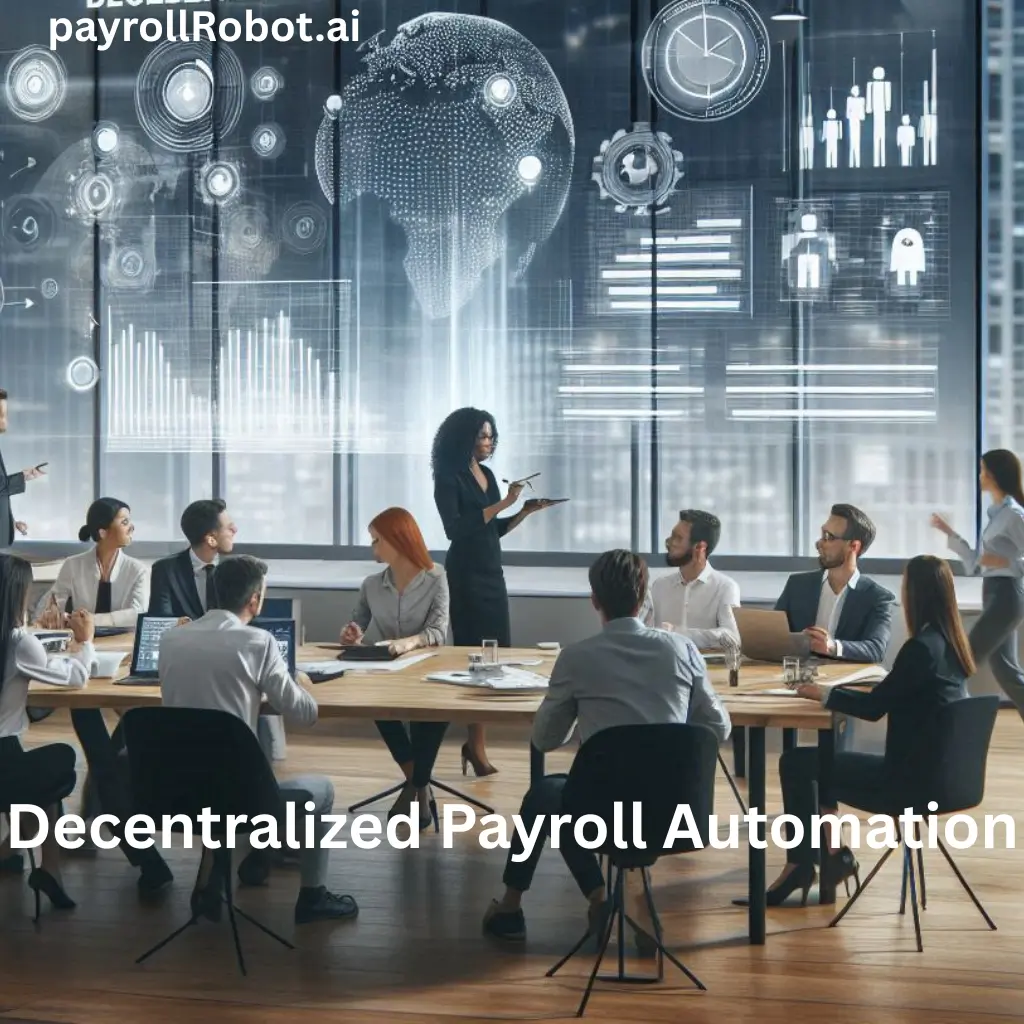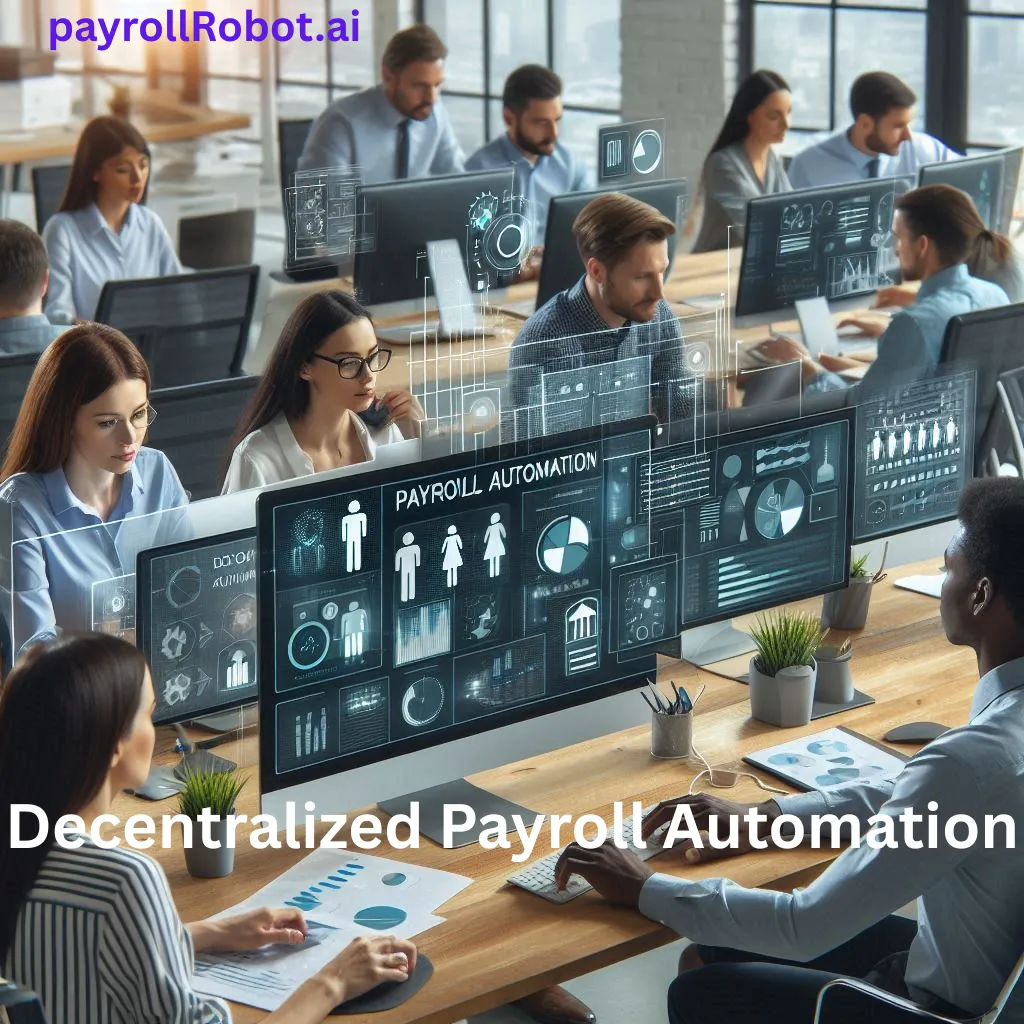Introduction
Payroll management is evolving, and businesses are shifting towards decentralized payroll automation to optimize efficiency, improve transparency, and enhance security. Traditional payroll systems rely on centralized processing, requiring intermediaries to manage transactions, verify salaries, and ensure tax compliance. However, these methods often lead to inefficiencies, errors, and security vulnerabilities. Decentralized payroll automation eliminates these challenges by leveraging blockchain technology, smart contracts, and AI-driven automation.
Organizations adopting automated decentralized payroll solutions benefit from autonomous payroll processing, reducing administrative overhead and ensuring real-time salary distribution. Instead of relying on third-party payroll providers, companies can manage payroll transactions securely on decentralized networks, minimizing risks associated with manual payroll handling and improving employee payment accuracy.
How Decentralized Payroll Automation Works
Traditional payroll systems require centralized databases to store employee salary data, tax records, and payment transactions. Decentralized payroll automation eliminates the need for a single governing entity by distributing payroll data across secure blockchain networks. This decentralized infrastructure ensures payroll transactions remain tamper-proof, transparent, and accessible in real time.
Smart contracts play a crucial role in payroll automation by automating salary disbursements based on predefined conditions. Once an employee’s working hours, tax deductions, and benefits are verified, smart contracts execute payroll transactions autonomously, ensuring instant and error-free salary payments. By removing human intervention, companies reduce payroll discrepancies and guarantee accurate compensation for employees.
Enhancing Payroll Security with Blockchain
One of the most significant advantages of automated decentralized payroll solutions is its ability to enhance payroll security. Traditional payroll systems store sensitive employee data in centralized databases, making them susceptible to hacking, fraud, and unauthorized access. Blockchain-based payroll solutions protect payroll records using cryptographic security, ensuring payroll transactions remain secure, immutable, and resistant to manipulation.
Payroll fraud and unauthorized salary modifications are common risks in centralized payroll systems. Decentralized payroll automation mitigates these concerns by recording payroll transactions on an immutable ledger, preventing unauthorized payroll adjustments. Employees can verify salary payments instantly, ensuring transparency and trust in payroll management.
Reducing Payroll Costs with Decentralized Automation
Payroll processing involves multiple administrative tasks, including tax filings, benefit calculations, and salary disbursements. Traditional payroll providers charge significant fees to manage these processes, increasing payroll expenses for businesses. Payroll automation reduces costs by eliminating third-party payroll intermediaries, allowing companies to process payroll transactions autonomously.
Automated payroll execution ensures businesses minimize administrative overhead, reducing labor costs associated with manual payroll verification. Companies leveraging decentralized payroll solutions experience improved cost efficiency, enabling HR teams to allocate resources strategically rather than handling routine payroll operations.

Real-Time Payroll Processing Through Smart Contracts
Payroll delays impact employee satisfaction, especially for global businesses managing payroll across multiple jurisdictions. Traditional payroll systems require bank processing times, leading to delayed salary disbursements. Automated decentralized payroll solutions eliminate delays by leveraging smart contracts that process salary transactions instantly.
Once an employee’s work hours, deductions, and benefits are verified, smart contracts trigger payroll execution, ensuring real-time payment processing. Businesses benefit from enhanced payroll efficiency, eliminating delays caused by banking restrictions, manual approvals, and payroll miscalculations. Employees receive their salaries on time, boosting workforce engagement and financial reliability.
Decentralized Payroll Automation for Global Compliance
Multinational companies face complex payroll regulations across different regions, requiring extensive tax compliance efforts. Traditional payroll systems rely on local payroll providers to manage compliance, leading to inconsistencies and higher costs. Decentralized payroll automation ensures businesses comply with international payroll regulations by integrating real-time tax calculations and compliance monitoring into smart contracts.
AI-driven payroll systems analyze global tax laws, adjusting salary deductions automatically based on jurisdiction-specific payroll regulations. Businesses operating across multiple regions reduce legal risks and avoid penalties by maintaining accurate payroll records and ensuring compliance with evolving financial laws.
Decentralized Payroll Automation for Gig Economy Workers
The rise of the gig economy has increased demand for flexible payroll solutions. Freelancers, contractors, and remote employees often experience payment delays due to traditional payroll processing limitations. Decentralized payroll automation empowers gig economy workers by enabling seamless payroll execution without intermediaries.
Blockchain-powered payroll ensures independent workers receive instant payments once tasks are completed. Smart contracts verify work completion, triggering automatic salary disbursements without requiring employer approvals. Businesses leveraging decentralized payroll automation enhance worker satisfaction by providing reliable payroll solutions for flexible employment structures.
Challenges of Decentralized Payroll Automation
While decentralized payroll automation offers transformative benefits, businesses must address certain challenges, including regulatory acceptance, technology integration, and scalability. Blockchain-based payroll solutions require widespread adoption to ensure seamless implementation, and companies must navigate legal complexities associated with decentralized payroll compliance.
The integration of decentralized payroll into existing financial systems requires advanced technological infrastructure and expertise. Organizations transitioning to Next-gen payroll automation must invest in training and technology upgrades to ensure smooth adoption and operational efficiency. As blockchain payroll solutions continue to evolve, scalability improvements will drive broader acceptance across industries.
Future Trends in Decentralized Payroll Automation
As technology advances, autonomous payroll management system will continue to reshape payroll management. Emerging trends include AI-driven payroll forecasting, decentralized finance (DeFi) payroll models, and blockchain-based payroll analytics. Businesses investing in these innovations will experience enhanced payroll transparency, improved financial predictability, and automated workforce compensation structures.
Decentralized payroll automation will integrate seamlessly with HR platforms, providing predictive salary analytics, automated tax calculations, and blockchain-based salary tracking. Companies adopting these innovations will gain competitive advantages by optimizing payroll efficiency while ensuring secure and transparent workforce payments.
Conclusion
Decentralized payroll automation is transforming payroll management by reducing costs, enhancing security, and improving compliance. Businesses integrating blockchain-based payroll solutions benefit from real-time salary processing, automated tax calculations, and fraud-resistant payroll transactions. Smart contracts ensure seamless payroll execution, eliminating manual errors and banking delays while optimizing workforce payments.
Companies operating globally and within the gig economy will experience significant payroll advantages by implementing decentralized payroll automation. As technology continues to evolve, decentralized payroll solutions will redefine industry standards, ensuring businesses maintain financial stability and workforce reliability in the digital era.
Get started with payrollRobot.ai today!
Learn more about our AI-driven solutions on our AI Payroll Solutions page.


Comments are closed